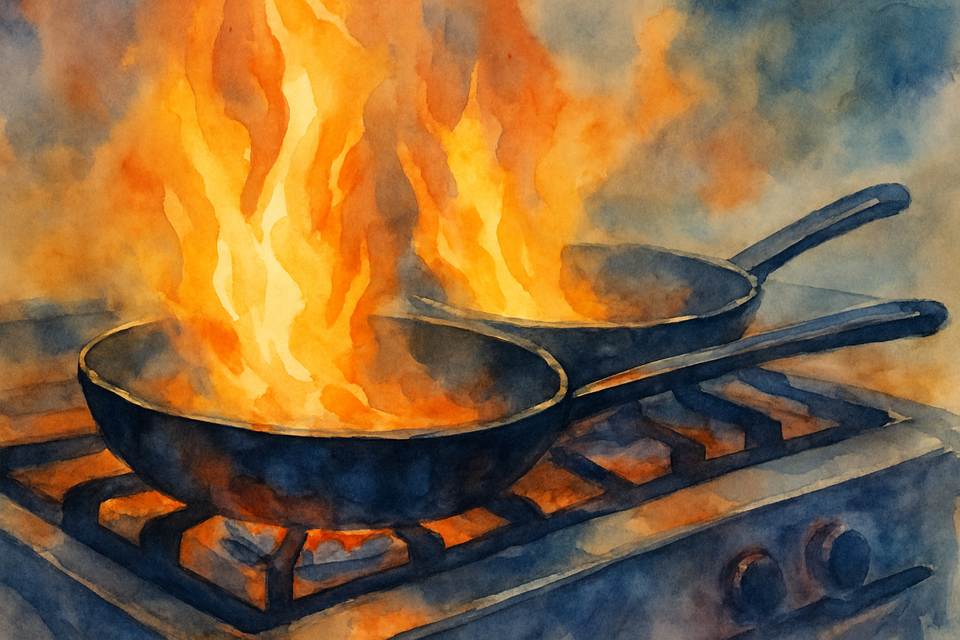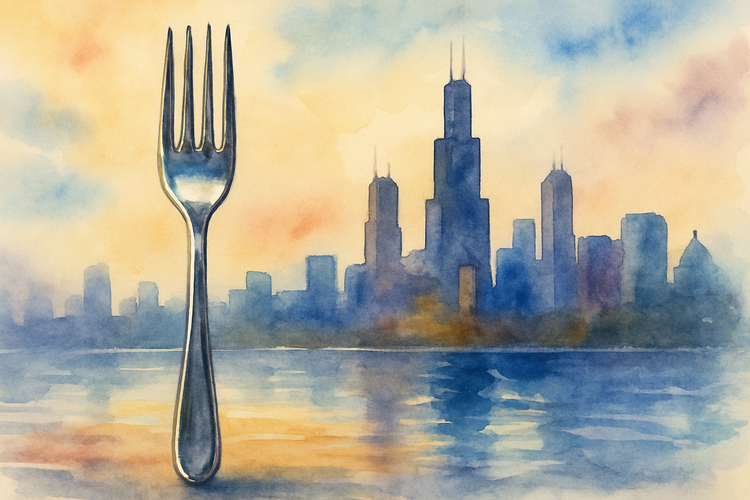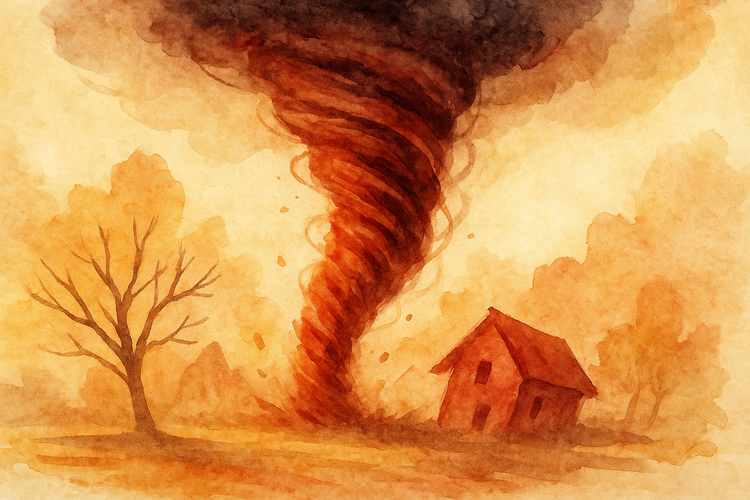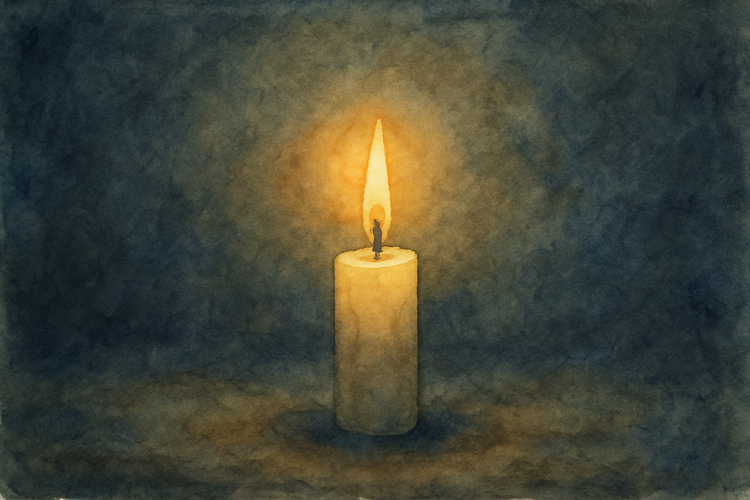The Bear S1E2 "Hands"

Spoilers ahead for Season 1 of The Bear.
Abusive Roots and Salvaged Discipline
The episode begins with Carmy back in the gleaming, brutal world of fine dining, where precision is enforced through cruelty. A chef leans close, whispering degradations in his ear — not guidance but abuse, designed to break him down into obedience. It’s a suffocating environment, one that equates humiliation with excellence and leaves no space for human error. This is the soil Carmy grew out of: immaculate plates, pristine stations, and the hidden rot of psychological damage.
When he returns to The Beef, Carmy doesn’t import the cruelty, but he does bring the discipline. Structure is what he knows, and it feels to him like the only possible path forward. He shouts for “hands” above the din, drills the staff on cleanliness, and introduces the rituals of professionalism into a space that has thrived on shortcuts and improvisation. These efforts are more than managerial fixes; they are survival mechanisms. Cleaning the kitchen becomes a way of cleaning himself, an attempt to impose order on both the restaurant and the turmoil inside him, to prove that collapse can be held at bay if only the rules are followed.
Collapse at Home
The order Carmy tries to enforce during the day crumbles the moment he steps outside the kitchen. At home, he doesn’t cook for himself but picks at a joyless junk food dinner, as if the act of real cooking belongs only to work and never to his own life. Even in sleep, the pressure doesn’t release him. He rises in the middle of the night, still cooking in his dreams, until he quite literally sets his own kitchen on fire. The collapse he fears at The Beef has already broken into his most private space: food without meaning, rest without safety, a life where the discipline meant to keep him steady instead drives him toward disaster.
Carmy’s unraveling deepens with his conversation with Jimmy, where the truth of Michael’s absence sharpens: his brother took three hundred thousand dollars before killing himself, leaving Carmy to inherit both grief and wreckage. He isn’t just managing a kitchen; he’s holding what’s left of Michael, trying to build something stable out of a legacy of debt and loss. Every demand for “hands” is haunted by the knowledge that Michael isn’t there and never will be again.
Sydney’s Order, Richie’s Resistance
Into this fragile balance step Sydney and Richie, each pulling the kitchen in opposite directions. Sydney arrives with her carefully prepared binder, page after page of ideas for how to modernize and stabilize the restaurant. Her vision is orderly, deliberate, built on observation and planning — a clear counterweight to the chaos Carmy is fighting. Richie, meanwhile, resists any imposition of structure, clinging to the old ways of doing things even as they drag everyone down. Their clashes make visible the fault lines already running through Carmy: Sydney’s professionalism pointing toward renewal, Richie’s volatility dragging him back toward collapse. The Beef becomes a pressure cooker where these competing instincts — order and chaos, discipline and resistance — battle for dominance.
The arrival of the food inspector brings these tensions into sharp relief. The kitchen, half-disciplined and half-chaotic, is exposed for what it is: a space in transition, not yet stable enough to pass scrutiny. The “C” rating lands like a verdict, confirming Carmy’s worst fear that collapse is already setting in. His fight with Richie is less about the grade itself than what it represents — proof that old habits are poisoning the future Carmy is desperate to build.
Grief, Blame, and Shared Collapse
The fallout sends Richie and Sydney on a supply run, an errand that becomes something more revealing. Their conversation turns to Michael, and the truth of his suicide surfaces. For Sydney, it reframes the weight of everything Carmy is carrying; for Richie, it reopens a wound that never really closes. Yet in the same car ride, Sydney also sees Richie’s tenderness in the way he talks to his daughter, a glimpse of humanity beneath his volatility.
Richie convinces himself that the cigarettes were the reason for the “C.” The inspector did single them out, and Richie absorbs that judgment easily, quick to assume blame because it fits the role he already plays. But the quiet truth is that the oversight belonged to Carmy. Even the one straining hardest to impose order is not immune to collapse. The divide between control and chaos blurs: both men contribute to the instability, each in their own way.
Hands Reaching for Stability
What Hands leaves us with is less a tidy lesson than a portrait of people caught between the pull of order and the inevitability of collapse. Carmy clings to structure, convinced that discipline is the only path forward, yet his own mistakes reveal how fragile that order really is. Sydney embodies possibility, her binder of ideas offering a glimpse of a future where The Beef might become something sustainable, but her optimism keeps colliding with the weight of the past. Richie resists change yet carries a tenderness that complicates his role as pure chaos; his quick acceptance of blame for the cigarettes isn’t a spiral so much as a reflection of how naturally he assumes that role in the kitchen. Together, they form a triangle of pressure, each reflecting a different response to grief, disorder, and the haunting absence of Michael.
The title Hands echoes through it all — the call Carmy shouts to keep the line moving, the hands that clean or fumble, reach for control or spread disorder. In this episode, those hands reveal themselves not as perfect instruments of order but as human, flawed, and trembling under the weight of what they carry.



Comments ()